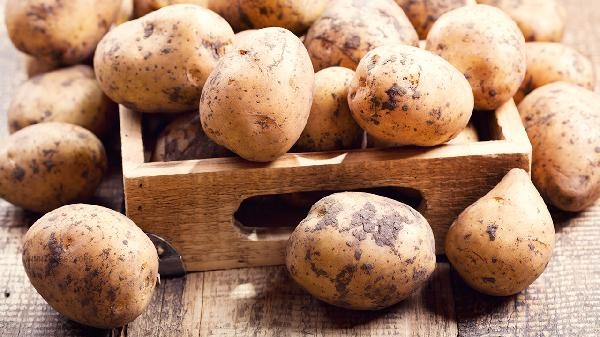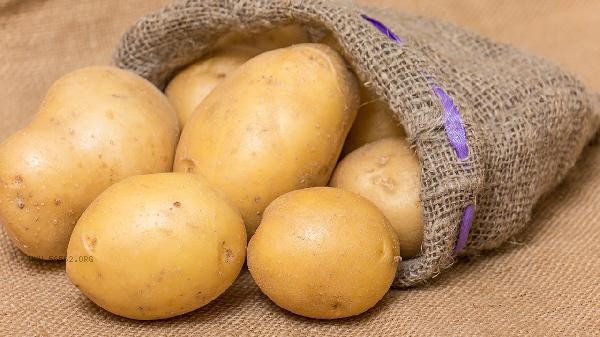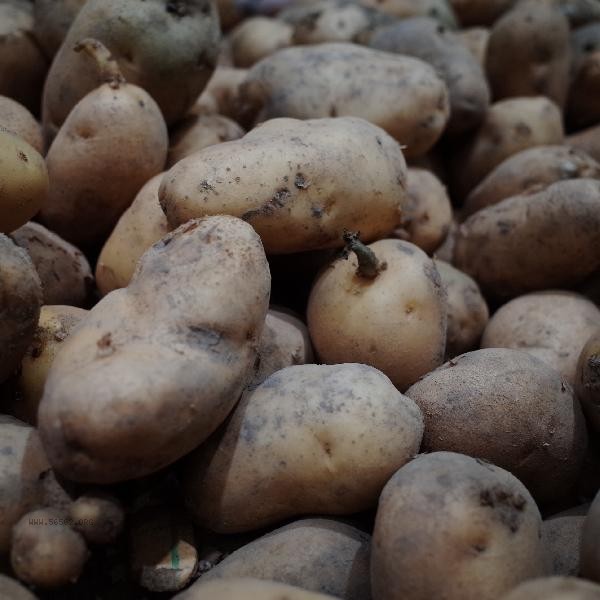Potatoes can be stored at low temperatures, away from light, dry and ventilated, isolated from oxygen, avoid mixing, and undergo regular inspections to prevent germination and maintain their green color.

1. Low temperature and light avoidance
Storing potatoes in a cool environment at 5-8 degrees Celsius can effectively inhibit germination. Excessive temperature can accelerate potato respiration and cause germination, while temperatures below 4 degrees Celsius may trigger starch saccharification and affect taste. Cellars, basements, or lower drawers in refrigerator compartments are ideal choices, but direct contact with the inner walls of the refrigerator should be avoided to prevent frostbite. When storing, wrap it in a black plastic bag or place it in an opaque container to avoid light induced solanine production, which can cause the skin to turn green.
2. Dry and ventilated
Wet environments can easily cause potatoes to mold and rot. It is recommended to store them in breathable containers such as bamboo baskets and mesh bags. Moisture absorbing materials such as newspapers and sawdust can be placed at the bottom of the container and regularly replaced to keep it dry. Do not store after washing with water, as residual moisture can accelerate spoilage. If the skin is found to be damp, it should be dried in a timely manner. During the rainy season, food desiccants can be placed to assist in dehumidification, while maintaining air circulation in the storage area.
III. Isolation of Oxygen
Using vacuum sealing or inert gas storage can delay potato metabolism. Families can tightly wrap individual potatoes with cling film to reduce the contact area with oxygen. A more economical method is to cover the layered storage with clean fine sand, with a sand layer thickness of 3-5 centimeters, which can isolate the air and regulate humidity. Be careful not to use completely sealed plastic bags, moderate ventilation can prevent the growth of anaerobic bacteria.

Fourth, avoid mixing
Potatoes should not be placed together with fruits such as apples and bananas that release ethylene, as ethylene can promote tuber germination. Onion, garlic and other strongly scented ingredients should also be stored separately to avoid cross contamination. It is recommended to divide the storage area separately, and if space is limited, maintain a minimum distance of 30 centimeters or physically separate them with partitions. At the same time, individuals that have sprouted or damaged their epidermis should be removed to prevent affecting the overall preservation effect.
Fifth, Regular Inspection
Potatoes stored should be flipped and inspected weekly to promptly remove individuals that have sprouted, softened, or have black spots on the skin. Mild germination can be consumed as soon as possible after digging the bud eyes deeply. If the bud length exceeds 2 millimeters or the epidermis turns green on a large area, it is recommended to discard it. Pay attention to handling with care during inspection to avoid mechanical damage. Keep hands dry and clean before and after handling to avoid introducing mold spores to contaminate other potatoes.

In addition to the above storage methods, it is recommended to purchase reasonably according to household consumption, and for short-term storage, immature thick skinned potatoes can be selected. Cut potatoes should be soaked in clean water and refrigerated before use within 24 hours. Potatoes that have sprouted and turned green may contain excessive solanine. Before consumption, the sprouted parts and surrounding tissues should be thoroughly removed. High temperature cooking can partially decompose toxins, but sensitive individuals should still avoid consumption. Long term preservation can consider processing potatoes into dried potatoes, starch, and other processed products, which not only extends their shelf life but also increases their edible diversity.









Comments (0)
Leave a Comment
No comments yet
Be the first to share your thoughts!